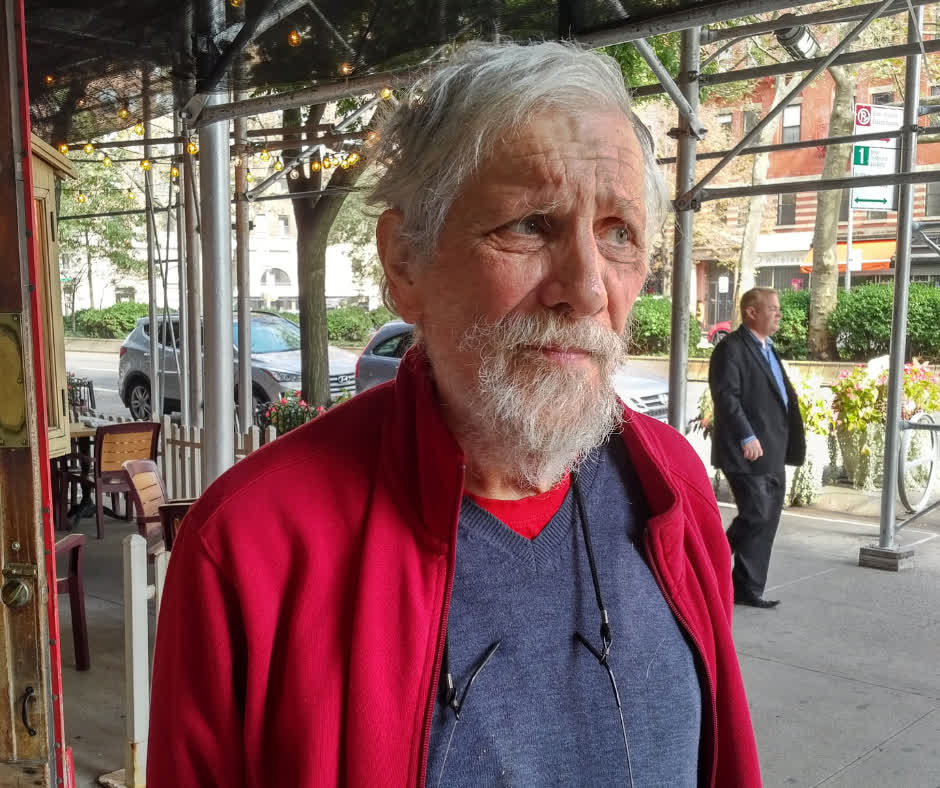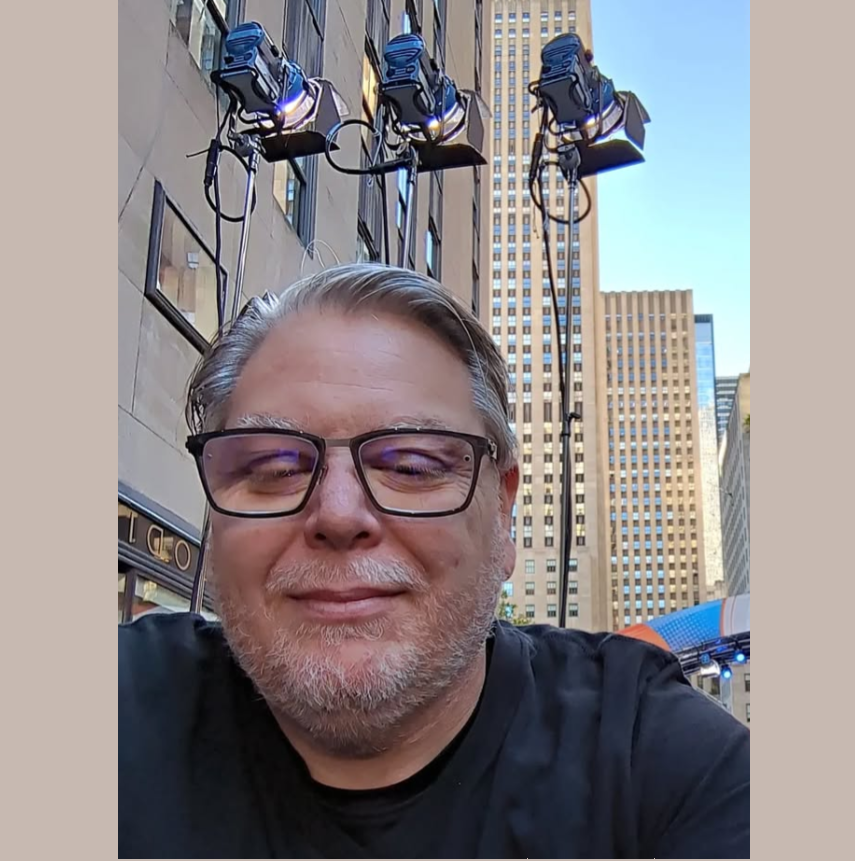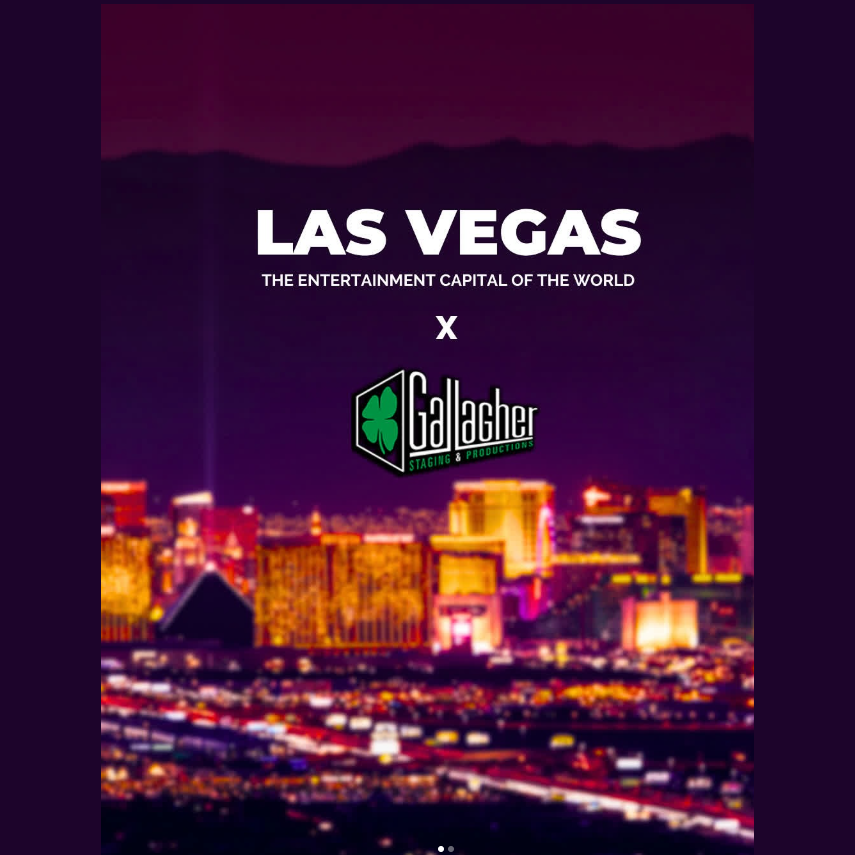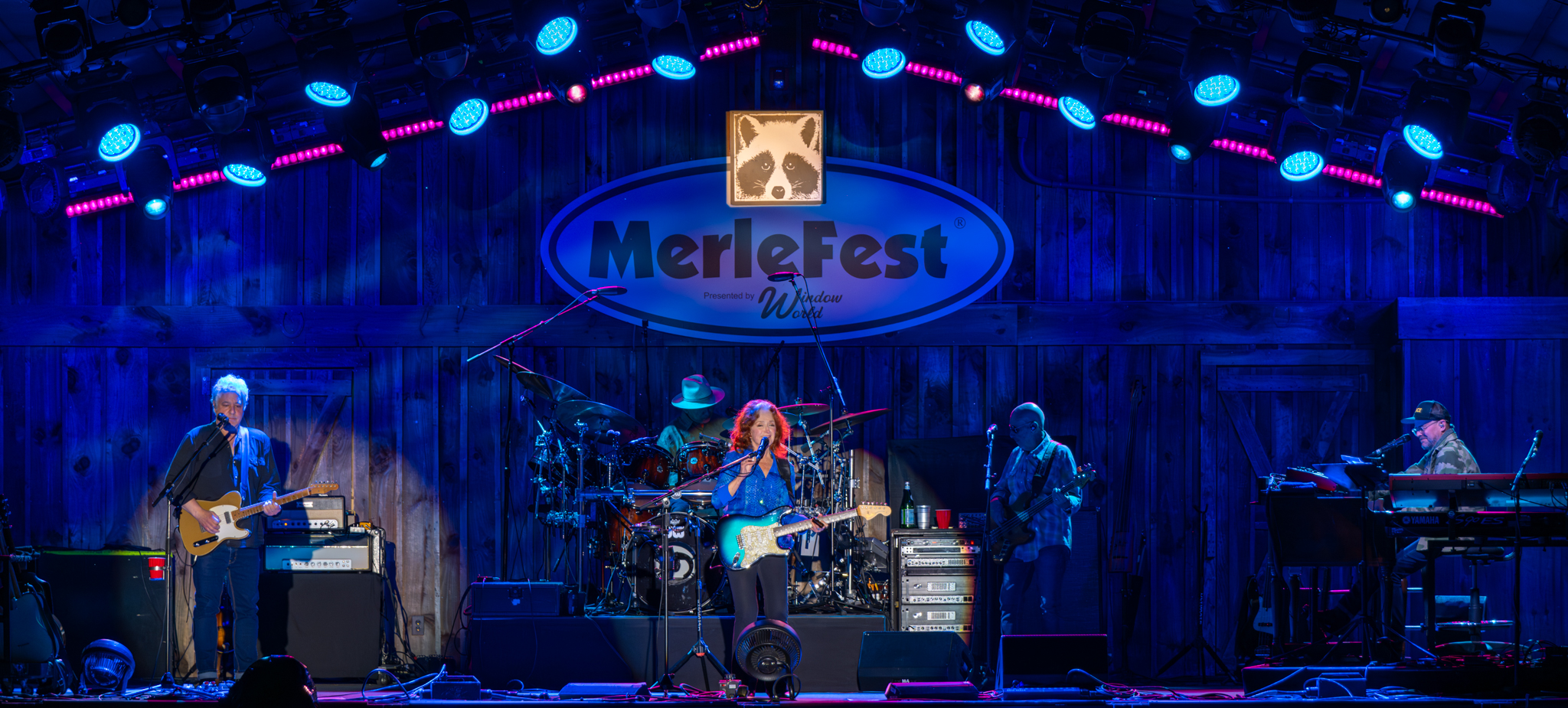
“We know someday they’ll be live shows again — but when? No one can answer that. It’s not like we’re delayed because of rain or the artist got sick … it’s all out of our control.” —Jim Digby
This pandemic affects everyone, but for those who so closely identify who they are with what they do, it’s devastating. And if that job is in live events, the end is nowhere in sight, and that can take a toll on your mental health. As PLSN/FOH publisher Terry Lowe said a recent state-of-the-industry webinar (www.plsn.me/CovidUpdate), “It’s not like we can do curb-side take out.” Show Maker Symposium, (www.showmakersymposium.com), a 501(C)(3) non-profit formed this year, has stepped in.
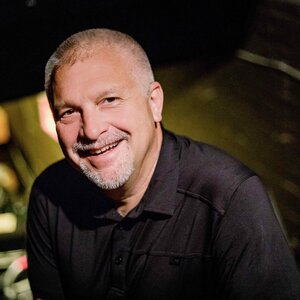
Show Maker Symposium was formed pre-virus to address the need for a more holistic industry gathering for behind-the-scenes professionals. A pivot ensued, and now they have been hosting a series of Friday afternoon webinars on mental health issues and just completed their 12th under the I’m With the Crew banner. All episodes are on their website and worthy of a visit, especially in these troubling times, starting with the first, Mental Resilience During the Blackout (www.plsn.me/SMS-1) which aired on March 23. The webinars are drawing between 300-500 people live, and many others are checking them out after online. Among those behind it are founder/producer Jim Digby (also of the Event Safety Alliance), tour manager Misty Roberts; and video director/photographer Shelby Carol Cude.
The mental health series will be operational for the foreseeable future, says Digby. “Humans in our industry sometimes have a propensity to carry a ‘false bravado’ from the nature of the work we do, and in the early days of Covid felt that this would not affect them to the extent it has, it was clear to the Symposium group that in addition to the loss of income, we were and are going to be suffering hard mentally. What may make us different from other professions is that we are emotionally connected to the work. When those things are abruptly taken away, the emptiness it leaves behind can become concerning, possibly destructive, we wanted to address that concern in a meaningful and hopeful way.”
While some in our industry may be better equipped to work proactively on their mental resilience just as one does their body strength, others need to be encouraged to seek help and support. “What we do is important and unique, our work has its own rules. We’re not reporting to anyone other than ourselves more or less, and that gives us a false sense of control in the world.” The pandemic hits, and for the first time we’re all out of work and we can’t take charge of anything. “We know someday they’ll be live shows again — but when? No one can answer that. It’s not like we’re delayed because of rain or the artist got sick … it’s all out of our control.” The overall message of the Symposium and these mental health webinars in general is that we’re stronger together, and we’re in this together.
Providing Some Guidance
Misty Roberts started working with regional and Midwestern bands in 2002 and has global experience as tour director, tour manager, and production manager. When she agreed to work with Digby on the symposium, the Covid-19 crisis hit. “We had to figure out what information is important and how we get it out there,” she says. “I have a wonderful therapist, Tayrn Longo, and I asked her to be involved, and then [addiction expert] Dave [Sherman] was brought in.” Besides those main host and co-hosts, special industry guests as Joey Gallagher, Scott Scovill and David “5-1” Norman have sat in.
Roberts says one of the many clear situations that has emerged is that everyone is going to feel different on any given days. “It’s not linear. I’ll talk to people one day and everything is fine, and the next day I can’t get out of bed. Our purpose is missing.” The long-term impact on our industry is evident and taking on-line courses is much encouraged. Also, for some, there’s the opportunity to start over in a career that is completely different and that can lead to “some really exciting years.”
The future of live events is going to be different, someone like a tour manager, who is used to juggling and multi-tasking, thinks about. “How do you move a crew around without putting them at risk? Maybe instead of people coming to you, you come to the people. You play to a mostly empty arena, but there’s an add-on component on Netflix.”
Cude is a video director by trade and a creative producer for Show Maker Symposium. Like the others involved in these webinars and pretty much all of us, she has been affected. Her young career was on the upswing and had “a year’s worth of work booked, and then everything fell apart.
“This is a recognizable need,” Cude adds, of these webinars. “Certain parts of our business don’t necessarily lend themselves to a healthy mental space. There is little time to sleep and eat and precious highs when touring with a band. We’ve learned a lot through the process in having these conversations and taking a more clinical approach to mental health.” Cude has been in therapy for years and father was an addict, so her perspective is helpful.
“What I’m hearing from friends is that everyone has a different way to cope, and a lot of it has to do with where they are in their career and what level of responsibility they are used to.” She says her peers — younger players — are finding positive ways to cope and try to remain as active as we can. Understanding the need for help and knowing where to find it is something that she hopes these sessions help. “That requires a lot of vulnerability, and with the older generation that might be a harder place to get it. It might trigger some shame or guilt. But I think the webinars can provide guidance.”
The Substance of Addiction
One of the concerns early on was the realization that this lockdown is a sizable trigger for someone who is not fully able to manage their substance abuse. Sherman, who runs The Road to Rehab (www.theroadtorehab.com), has been working with those in the music industry suffering from drug abuse and alcoholism for decades. “I have some clients come through that just can’t be in in this environment anymore and need to change careers,” he says. “But I also have others that go back and learned that they were better [at their job] than they were before” and continue a safe, healthy career. “They didn’t think it would still be fun, but it is.” Sherman himself is in long-term recovery. “I still like traveling and seeing live music.” He adds that the live music is much richer experience for him than when he was drug impaired. “I experience a deeper connection.”
Now there is another category: The hard-partiers who have always maintained relationships and never got in trouble with the law who are now facing months of no work. Rather than a “let’s day drink now” attitude, he encourages the opposite: “Now is the time to pivot to something else,” he says. “This is the time to be healthier and even trying absence. Let’s develop healthier habits to live a more productive, enjoyable life.”
He points out that a recovery plan doesn’t have to be Alcoholics Anonymous, which is rooted in a Christian belief system. Sherman mentions “SMART Recovery,” which is for those who do not identify as spiritual or religious, and notes other groups inspired by Buddhist principles, such as Refuge Recovery, that has “a lot of meetings online.”
What to Do
Sherman mentions that those struggling should also try online meditation, yoga, boot camps, and many other healthy choice options. Get into regular contact with management and others you’ve worked with on the road — including that tech you did that tour with seven years ago and you haven’t seen since. “Reconnecting with these folks can lead to opportunities,” he says, adding that connecting with others and sharing experiences can be therapeutic by itself. On that topic, he adds, “just recognize that the pandemic is affecting everyone differently. Of your three closest friends, one is fine, one is overwhelmed, and another is anxious and distraught to the point of being paralyzed. Just keep in mind when you’re talking to people that not everyone is in the same headspace.”
Another industry resource is Behind the Scenes’ (www.behindthescenescharity.org) Mental Health and Suicide Prevention Initiative (www.plsn.me/BTS-help), in partnership with HelpPRO, which has launched the Entertainment Industry Therapist Finder (www.helppro.com/eitf). The Finder only includes listings for mental health professionals who have previously worked with clients in the entertainment industry or who have personal professional experience in the industry themselves. Crew members are able to search for a therapist using a search form which includes location, insurance accepted, what areas the therapist specializes in, and therapist availability such as whether they see clients remotely or on nights and weekends. An advanced search is available which also includes such criteria as theoretical approaches, credentials held by the therapist, specific populations they have experience with, and languages spoken.
“We’re going to get through this,” Misty Roberts adds. “Our entire industry is made of extremely creative people who make things happen. More people are going to come up with some amazing super innovative ways to combat the situate because that’s what we do. That challenge is bigger than anything we’ve faced but it’s not impossible to overcome.”
A Different Kind of Grief — But Grief Nonetheless
We’ve likely all experienced grief in terms of losing a loved-one, but experts are saying that to see the loss of so many things in the face of this pandemic as grief is important to getting through it. “You grieve losing a job, and in this industry, where most people develop the majority of their relationships on a tour, then those relationships become a second or even a first family,” says bereavement counselor Suzi Spangenberg. “To be suddenly separated from family is always difficult.”
Spangenberg, who is also a stage manager and associate producer of the Parnelli Awards in addition to have written for FRONT of HOUSE Magazine, adds that as we’re experiencing “unprecedented national grief that affects everyone,” our industry is particularly impacted by the fear of the unknown. The recent cancellations of festivals already postponed from the spring, the threat of a second wave, and the lack of clarity about the return of anything remotely “normal” about concert touring exacerbates the grief and anxiety perhaps more than any other industry.
“We might not anticipate feelings of grief and loss from being cut off from our road families, and now either being alone or cooped up with families and kids with those unexpected feelings isn’t easy. Factor in everything associated with loss of income and it can be overwhelming.” The typical crew member looks forward to a tour and return to the work they do well and the camaraderie that happens is tied to their self-esteem. “There is a certain level of pride that comes along with this business,” she says. “It’s entertainment. It’s helping to put on a show that positively impacts audience life. That particularly show you’re working on is something audience members might talk about for years to come. That allure of entertainment is not something that can be done at home. You can’t be a Lighting Designer at home, you can’t be a FOH engineer at home. Your identity is tied to touring and when it’s suddenly pulled away without any warning, it’s painful. And it affects not only your mental health but your physical health, as well.” It creates a group of people who are uniquely grieving, but it’s not really something you can talk about with people who aren’t familiar with that life. “It’s a different world.”
One aspect of all this is particularly important: “It’s important to look at grief adaption instead of coping,” she says. The difference is to keep adjusting to the ongoing changes and the uncertainty of it all. “Coping implies that there is a time-limited response to something that is linear, and we now know that’s not true. Adaption implies that things won’t be normal, and that normal is going to change. An adaptive strategy can allow people to better navigate the situation, and come out stronger.”
